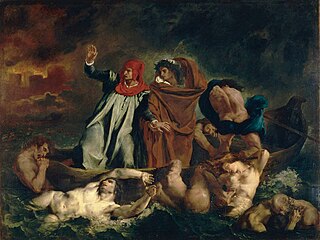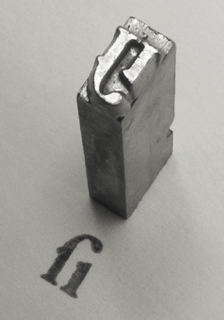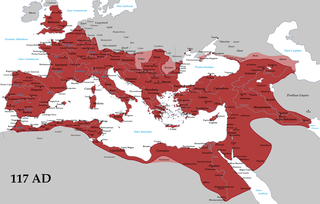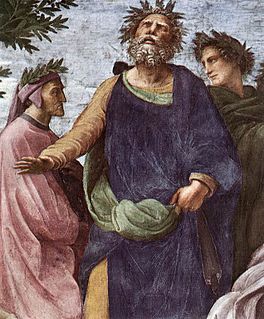 W
WWestern culture, sometimes equated with Western civilization, Occidental culture, the Western world, Western society, and European civilization, is the heritage of social norms, ethical values, traditional customs, belief systems, political systems, artifacts and technologies of the Western world that originated in or are associated with Europe. The term also applies beyond Europe to countries and cultures whose histories are strongly connected to Europe by immigration, colonization, or influence. For example, Western culture includes countries in Northern America, such as Canada and the United States, or Australasia, such as Australia and New Zealand, whose language and demographic ethnicity majorities are of European descent without indigenous influence. Western culture is most strongly influenced by the Greco-Roman and Christian cultures.
 W
WWestern philosophy refers to the philosophical thought and work of the Western world. Historically, the term refers to the philosophical thinking of Western culture, beginning with the ancient Greek philosophy of the pre-Socratics. The word philosophy itself originated from the Ancient Greek philosophía (φιλοσοφία), literally, "the love of wisdom".
 W
WAmericanization is the influence American culture and business has on other countries outside the United States, including their media, cuisine, business practices, popular culture, technology or political techniques. The term has been used since at least 1907. While not necessarily a pejorative term, it is most often used by critics in the target country who are against the influences.
 W
WAristotle was a Greek philosopher and polymath during the Classical period in Ancient Greece. Taught by Plato, he was the founder of the Lyceum, the Peripatetic school of philosophy, and the Aristotelian tradition. His writings cover many subjects including physics, biology, zoology, metaphysics, logic, ethics, aesthetics, poetry, theatre, music, rhetoric, psychology, linguistics, economics, politics, meteorology and government. Aristotle provided a complex synthesis of the various philosophies existing prior to him. It was above all from his teachings that the West inherited its intellectual lexicon, as well as problems and methods of inquiry. As a result, his philosophy has exerted a unique influence on almost every form of knowledge in the West and it continues to be a subject of contemporary philosophical discussion.
 W
WThe art of Europe, or Western art, encompasses the history of visual art in Europe. European prehistoric art started as mobile Upper Paleolithic rock and cave painting and petroglyph art and was characteristic of the period between the Paleolithic and the Iron Age. Written histories of European art often begin with the art of Ancient Israel and the Ancient Aegean civilizations, dating from the 3rd millennium BC. Parallel with these significant cultures, art of one form or another existed all over Europe, wherever there were people, leaving signs such as carvings, decorated artifacts and huge standing stones. However a consistent pattern of artistic development within Europe becomes clear only with the art of Ancient Greece, adopted and transformed by Rome and carried; with the Roman Empire, across much of Europe, North Africa and the Middle East.
 W
WArtistic merit is the artistic quality or value of any given work of art, music, film, literature, sculpture or painting.
 W
WBeing Different: An Indian Challenge to Western Universalism is a 2011 book by Rajiv Malhotra, an Indian-American author, philanthropist and public speaker, published by HarperCollins. The book reverts the gaze of the western cultures on India, repositioning India from being the observed to the observer, by looking at the West from a Dharmic point of view.
 W
WBorealism is a form of exoticism in which stereotypes are imposed on the Earth's northern regions and cultures.
 W
WThe Catholic Church, often referred to as the Roman Catholic Church, is the largest Christian church, with approximately 1.3 billion baptised Catholics worldwide as of 2019. As the world's oldest and largest continuously functioning international institution, it has played a prominent role in the history and development of Western civilisation. The church consists of 24 particular churches and almost 3,500 dioceses and eparchies around the world. The pope, who is the Bishop of Rome, is the chief pastor of the church, entrusted with the universal Petrine ministry of unity and correction. The church's administration, the Holy See, is in the Vatican City, a tiny enclave of Rome, of which the pope is head of state.
 W
WCultural Christians are nonreligious persons who adhere to Christian values and appreciate Christian culture. As such, these individuals usually identify themselves as culturally Christians, and are often seen by practicing believers as nominal Christians. This kind of identification may be due to various factors, such as family background, personal experiences, and the social and cultural environment in which they grew up.
 W
WChristianity is an Abrahamic monotheistic religion based on the life and teachings of Jesus of Nazareth. It is the world's largest religion, with about 2.4 billion followers. Its adherents, known as Christians, make up a majority of the population in 157 countries and territories, and believe that Jesus is the Christ, whose coming as the Messiah was prophesied in the Hebrew Bible, called the Old Testament in Christianity, and chronicled in the New Testament.
 W
WThe Western classical tradition is the reception of classical Greco-Roman antiquity by later cultures, especially the post-classical West, involving texts, imagery, objects, ideas, institutions, monuments, architecture, cultural artifacts, rituals, practices, and sayings. Philosophy, political thought, and mythology are three major examples of how classical culture survives and continues to have influence. The West is one of a number of world cultures regarded as having a classical tradition, including the Indian, Chinese, Judaic, and Islamic traditions.
 W
WDemocracy is a form of government in which the people have the authority to choose their governing legislators. The decisions on who is considered part of the people and how authority is shared among or delegated by the people have changed over time and at different speeds in different countries, but they have included more and more of the inhabitants of all countries. Cornerstones include freedom of assembly and speech, inclusiveness and equality, membership, consent, voting, right to life and minority rights.
 W
WThe Age of Enlightenment was an intellectual and philosophical movement that dominated the world of ideas in Europe during the 17th and 18th centuries. The Enlightenment included a range of ideas centered on the pursuit of happiness, sovereignty of reason and the evidence of the senses as the primary sources of knowledge and advanced ideals such as liberty, progress, toleration, fraternity, constitutional government and separation of church and state.
 W
WThe term "Greco-Roman world", as understood by modern scholars and writers, refers to geographical regions and countries that culturally - and so historically - were directly and intimately influenced by the language, culture, government and religion of the ancient Greeks and Romans. A better-known term is classical civilisation. In exact terms the area refers to the "Mediterranean world", the extensive tracts of land centred on the Mediterranean and Black Sea Basins, the "swimming pool and spa" of the Greeks and the Romans, in which those peoples' cultural perceptions, ideas and sensitivities became dominant in classical antiquity.
 W
WHistory of citizenship describes the changing relation between an individual and the state, commonly known as citizenship. Citizenship is generally identified not as an aspect of Eastern civilization but of Western civilization. There is a general view that citizenship in ancient times was a simpler relation than modern forms of citizenship, although this view has been challenged.
 W
WHeraldry is the system of visual identification of rank and pedigree which developed in the European High Middle Ages, closely associated with the courtly culture of chivalry, Latin Christianity, the Crusades, feudal aristocracy, and monarchy of the time. Heraldic tradition fully developed in the 13th century, and it flourished and developed further during the Late Middle Ages and the Early Modern period. Originally limited to nobility, heraldry is adopted by wealthy commoners in the Late Middle Ages. Specific traditions of Ecclesiastical heraldry also develop in the late medieval period. Coats of arms of noble families, often after their extinction, becomes attached to the territories they used to own, giving rise to municipal coats of arms by the 16th century.
 W
WWestern civilization traces its roots back to Europe and the Mediterranean. It is linked to ancient Greece, the Roman Empire and with Medieval Western Christendom which emerged from the Middle Ages to experience such transformative episodes as the Renaissance, the Reformation, the Enlightenment, the Industrial Revolution, scientific revolution, and the development of liberal democracy. The civilizations of Classical Greece and Ancient Rome are considered seminal periods in Western history; a few cultural contributions also emerged from the pagan peoples of pre-Christian Europe, such as the Celts and Germans, as well as some significant religious contributions derived from Judaism and Hellenistic Judaism stemming back to Second Temple Judea, Galilee, and the early Jewish diaspora; and some other Middle Eastern influences. Western Christianity has played a prominent role in the shaping of Western civilization, which throughout most of its history, has been nearly equivalent to Christian culture.. Western civilization has spread to produce the dominant cultures of modern Americas and Oceania, and has had immense global influence in recent centuries in many ways.
 W
WWestern civilization describes the development of human civilization beginning in Ancient Greece, and generally spreading westwards. However, Western civilization in its more strictly defined sphere traces its roots back to Rome and the Western Mediterranean. It can be strongly associated with nations linked to the former Western Roman Empire and with Medieval Western Christendom.
 W
WModern typographers view typography as a craft with a very long history tracing its origins back to the first punches and dies used to make seals and coinage currency in ancient times. The basic elements of typography are at least as old as civilization and the earliest writing systems—a series of key developments that were eventually drawn together into one systematic craft. While woodblock printing and movable type had precedents in East Asia, typography in the Western world developed after the invention of the printing press by Johannes Gutenberg in the mid-15th century. The initial spread of printing throughout Germany and Italy led to the enduring legacy and continued use of blackletter, Roman and italic types.
 W
WDuring the high medieval period, the Islamic world was at its cultural peak, supplying information and ideas to Europe, via Al-Andalus, Sicily and the Crusader kingdoms in the Levant. These included Latin translations of the Greek Classics and of Arabic texts in astronomy, mathematics, science, and medicine. Translation of Arabic philosophical texts into Latin "led to the transformation of almost all philosophical disciplines in the medieval Latin world", with a particularly strong influence of Muslim philosophers being felt in natural philosophy, psychology and metaphysics. Other contributions included technological and scientific innovations via the Silk Road, including Chinese inventions such as paper and gunpowder.
 W
WAncient Greek literature is literature written in the Ancient Greek language from the earliest texts until the time of the Byzantine Empire. The earliest surviving works of ancient Greek literature, dating back to the early Archaic period, are the two epic poems the Iliad and the Odyssey, set in an idealized archaic past today identified as having some relation to the Mycenaean era. These two epics, along with the Homeric Hymns and the two poems of Hesiod, Theogony and Works and Days, comprised the major foundations of the Greek literary tradition that would continue into the Classical, Hellenistic, and Roman periods.
 W
WMaterial culture is the aspect of social reality grounded in the objects and architecture that surround people. It includes the usage, consumption, creation, and trade of objects as well as the behaviors, norms, and rituals that the objects create or take part in. Some scholars also include other intangible phenomena that include sound, smell and events, while some even consider language and media as part of it. The term is most commonly used in archaeological and anthropological studies, to define material or artifacts as they are understood in relation to specific cultural and historic contexts, communities, and belief systems. Material cultural can be described as any object that humans use to survive, define social relationships, represent facets of identity, or benefit peoples' state of mind, social, or economic standing. Material culture is contrasting to symbolic culture, which includes nonmaterial symbols, beliefs, and social constructs.
 W
WPittacus was an ancient Mytilenean military general and one of the Seven Sages of Greece.
 W
WPlato was an Athenian philosopher during the Classical period in Ancient Greece, founder of the Platonist school of thought and the Academy, the first institution of higher learning in the Western world.
 W
WPlatonism is the philosophy of Plato and philosophical systems closely derived from it, though contemporary platonists do not necessarily accept all of the doctrines of Plato. Platonism had a profound effect on Western thought. Platonism at least affirms the existence of abstract objects, which are asserted to exist in a third realm distinct from both the sensible external world and from the internal world of consciousness, and is the opposite of nominalism. This can apply to properties, types, propositions, meanings, numbers, sets, truth values, and so on. Philosophers who affirm the existence of abstract objects are sometimes called platonists; those who deny their existence are sometimes called nominalists. The terms "platonism" and "nominalism" also have established senses in the history of philosophy. They denote positions that have little to do with the modern notion of an abstract object.
 W
WThe Western religions are the religions that originated within Western culture, which are thus historically, culturally, and theologically distinct from Eastern, African and Iranian religions. The term Abrahamic religions is often used instead of using the East and West terminology.
 W
WThe Renaissance was a period in European history marking the transition from the Middle Ages to modernity and covering the 15th and 16th centuries. It occurred after the Crisis of the Late Middle Ages and was associated with great social change. In addition to the standard periodization, proponents of a "long Renaissance" may put its beginning in the 14th century and its end in the 17th century. The traditional view focuses more on the early modern aspects of the Renaissance and argues that it was a break from the past, but many historians today focus more on its medieval aspects and argue that it was an extension of the Middle Ages.
 W
WChristianity has been intricately intertwined with the history and formation of Western society. Throughout its long history, the Church has been a major source of social services like schooling and medical care; an inspiration for art, culture and philosophy; and an influential player in politics and religion. In various ways it has sought to affect Western attitudes towards vice and virtue in diverse fields. Festivals like Easter and Christmas are marked as public holidays; the Gregorian Calendar has been adopted internationally as the civil calendar; and the calendar itself is measured from the date of Jesus's birth.
 W
WThe Roman Empire was the post-Republican period of ancient Rome. As a polity it included large territorial holdings around the Mediterranean Sea in Europe, Northern Africa, and Western Asia ruled by emperors. From the accession of Caesar Augustus to the military anarchy of the 3rd century, it was a principate with Italy as metropole of the provinces and the city of Rome as sole capital. After the military crisis, the empire was ruled by multiple emperors who shared rule over the Western Roman Empire and over the Eastern Roman Empire. Rome remained the nominal capital of both parts until AD 476, when the imperial insignia were sent to Constantinople, following the capture of Ravenna by the barbarians of Odoacer and the subsequent deposition of Romulus Augustulus. The adoption of Christianity as the state church of the Roman Empire in AD 380 and the fall of the Western Roman Empire to Germanic kings conventionally marks the end of Classical antiquity and the beginning of the Middle Ages. Those events, along with the gradual hellenization of the Eastern Roman Empire is why historians distinguish the medieval Roman Empire that remained in the Eastern provinces as the Byzantine Empire.
 W
WScholasticism was a medieval school of philosophy that employed a critical method of philosophical analysis predicated upon a Latin Catholic theistic curriculum which dominated teaching in the medieval universities in Europe from about 1100 to 1700. It originated within the Christian monastic schools that were the basis of the earliest European universities. The rise of scholasticism was closely associated with these schools that flourished in Italy, France, Spain and England.
 W
WSocrates was a Greek philosopher from Athens who is credited as one of the founders of Western philosophy, and as being the first moral philosopher of the Western ethical tradition of thought. An enigmatic figure, he authored no texts, and is known chiefly through the accounts of classical writers composing after his lifetime, particularly his students Plato and Xenophon. Other sources include the contemporaneous Antisthenes, Aristippus, and Aeschines of Sphettos. Aristophanes, a playwright, is the main contemporary author to have written plays mentioning Socrates during Socrates' lifetime, although a fragment of Ion of Chios' Travel Journal provides important information about Socrates' youth.
 W
WThe values that a person holds may be personal or political depending on whether they are considered in relation to the individual or to society. Apart from moral virtue, examples of personal values include friendship, knowledge, beauty etc. and examples of political values, justice, equality and liberty. This article will outline some current ideas relating to the first group - personal values. It will begin by looking at the kinds of thing that have value and finish with a look at some of the theories that attempt to describe what value is. Reference will be made solely to Western sources although it is recognised that many, if not all, of the values discussed may be universal.
 W
WThe Western canon is the body of high culture literature, music, philosophy, and works of art that is highly valued in the West: works that have achieved the status of classics. However, not all these works originate in the Western world, and such works are also valued throughout the world. It is "a certain Western intellectual tradition that goes from, say, Socrates to Wittgenstein in philosophy, and from Homer to James Joyce in literature". The word canon is derived from ancient Greek κανών, kanṓn, meaning a measuring rod, or standard. The Bible, a product of ancient Jewish culture, from the Levant, in Western Asia, has been a major force in shaping Western culture, and "has inspired some of the great monuments of human thought, literature, and art".
 W
WWestern Christianity is one of two sub-divisions of Christianity. Western Christianity is composed of the Latin Church and Protestantism, together with their offshoots such as Independent Catholicism and Restorationism.
 W
WThe history of Western painting represents a continuous, though disrupted, tradition from antiquity until the present time. Until the mid-19th century it was primarily concerned with representational and Classical modes of production, after which time more modern, abstract and conceptual forms gained favor.
 W
WThe Western world, also known as the West, refers to various regions, nations and states, depending on the context, most often consisting of the majority of Europe, Northern America and Australasia. The Western world is also known as the Occident, in contrast to the Orient or Eastern world. It might mean the Northern half of the North–South divide. Western culture is commonly said to include: Australia and New Zealand, Canada, all European member countries of the EFTA and EU, the European microstates, the NATO military alliance, the United Kingdom and the United States.
 W
WWesternization (US) or Westernisation (UK), also Europeanization/Europeanisation or occidentalization/occidentalisation, is a process whereby societies come under or adopt Western culture in areas such as industry, technology, politics, economics, lifestyle, law, norms, mores, customs, traditions, values, mentality, perceptions, diet, clothing, language, alphabet, religion, and philosophy. During colonialism it often involved spread of Christianity.